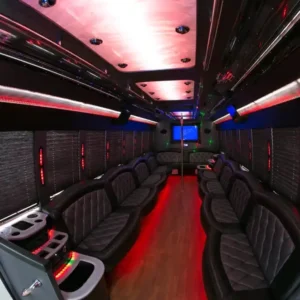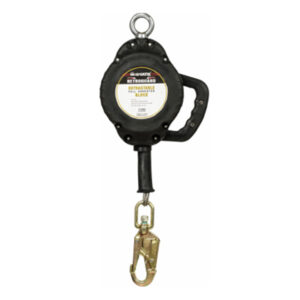California is home to a fast-growing industrial base powered by advanced automation, clean-energy systems, and high-precision manufacturing. Because plants run complex operations and depend on accurate control, the choice of a control panel manufacturer in California plays an important role in long-term performance. Electrical control panels form the backbone of machine automation, power distribution, and safety systems. Therefore, factories, utilities, and processing units need panels that meet tough operating conditions, strict compliance needs, and long production cycles. With rising focus on smart manufacturing and energy efficiency, industries now prefer control panels designed with durable components, organized wiring, and automation-ready layouts. Through long experience in electrical and automation systems, PIMA Industrial supports companies building or upgrading plants across regions that demand reliable control architectures built for continuous use.
Why Smart Plants in California Need Advanced Control Panels
California has a broad industrial mix that includes food processing, clean-tech manufacturing, aerospace, electronics, energy production, water utilities, and large commercial facilities. Because these operations depend on fast processes and strong compliance, the demand for high-performance control panels has grown.
Key reasons include
-
Strict electrical and safety regulations
-
Strong focus on energy performance
-
Heavy adoption of automation across plants
-
Long operating cycles in production facilities
-
Need for stable power distribution and monitoring
As plants upgrade to digital systems and connected devices, control panels must support more than basic wiring. They must handle communication, data transfer, motor control, and intelligent protection.
Types of Control Panels Used Across California Industrial Sites
A reliable control panel manufacturer must offer a wide portfolio to support varied industrial environments.
1. Motor Control Centers (MCC)
MCC panels organize and control motors for conveyors, pumps, compressors, and mixers. They need accurate overload protection and neat wiring.
2. Power Control Centers (PCC)
PCC panels distribute incoming power across machines and sub-systems. They manage safety, switching, and short-circuit handling.
3. VFD Control Panels
These panels operate variable frequency drives for energy savings and speed control. They are common in HVAC, water plants, and industrial machinery.
4. Soft Starter Panels
Soft starters help reduce the starting current of large motors, protecting mechanical and electrical systems.
5. PLC and Automation Panels
PLC panels execute machine sequences, logic control, and process automation. They must support sensors, communication modules, and SCADA platforms.
6. Distribution Panels
These panels supply power to small loads, building systems, and auxiliary equipment.
Each type serves a different industrial purpose, yet all demand accurate engineering and structured design.
Industrial Sectors in California Using Control Panels
California’s industrial base depends on automated control systems to keep plants running with precision, safety, and energy efficiency.
Food and Beverage
Processing and packaging lines need MCC, VFD, and PLC panels to manage motors and maintain consistency.
Pharmaceuticals and Biotech
These industries demand precise control, clean-room compliance, and high accuracy in automation.
Aerospace and Electronics
Panels must support detailed sequencing and machine control with reliable communication.
Water and Wastewater
Large pump systems rely on MCC, PCC, and automation panels to ensure stable operation.
Renewable Energy and Utilities
Solar farms, battery systems, and commercial buildings depend on safe and efficient electrical panels.
Automotive and Fabrication Units
Production lines require accurate control for welding, machining, and assembly.
These industries operate under intense quality expectations, so panels must meet strict design and performance requirements.
Key Qualities of a Dependable Control Panel Manufacturer
Not all panel manufacturers deliver the same engineering strength. Smart plants prioritize manufacturers who follow reliable processes and deliver tested systems.
1. Strong Engineering Background
Manufacturers must understand load behavior, automation demands, and protection coordination.
2. Quality Components
Using trusted brands for breakers, contactors, relays, meters, and wiring improves the reliability of the panel.
3. Clean and Organized Wiring
Structured wiring improves safety, reduces faults, and simplifies service tasks.
4. Compliance With Relevant Codes
Panels should follow requirements such as UL, NEC, and local electrical standards.
5. Experience With Automation
Panels must support PLCs, HMIs, VFDs, sensors, and communication systems.
6. Correct Documentation
Accurate wiring diagrams, general arrangements, test reports, and schedules make installation and maintenance easier.
These qualities form the foundation for safe and reliable control systems across industrial environments.
Key Requirements for Panels Installed in California’s Climate
Environmental conditions affect both performance and life cycle. Manufacturers supplying California plants must consider these factors while designing panels.
1. Heat Management
Panels must support ventilation, heat dissipation, or cooling options in warm environments.
2. Dust Protection
Facilities near industrial zones need dust-tight enclosures to protect internal components.
3. Corrosion Resistance
Panels in coastal or humid areas benefit from treated enclosures and stainless hardware.
4. Strong Mechanical Construction
Factories with vibration or heavy equipment need panels with rigid frames and secure mounts.
5. Accurate Short-Circuit Ratings
California plants often manage strong electrical loads, so panels must withstand fault levels.
Meeting these environmental needs helps maintain long service life and dependable operation.
How Smart Automation Shapes Modern Panel Design
California leads the adoption of smart manufacturing and digital systems. Because of this trend, control panel manufacturers must design panels that support intelligent functions.
Emerging features include
-
Remote monitoring via IoT tools
-
Real-time data logging for performance checks
-
Integration with SCADA and cloud systems
-
Smart meters for energy tracking
-
Communication-ready PLCs and HMIs
-
QR-based wiring information for easy service
These additions improve visibility across processes and help reduce downtime.
Role of Control Panels in Energy Efficiency
Energy is a central consideration for California industries. Control panels contribute to energy performance in many ways.
1. VFD-Based Motor Control
Drives reduce energy use by running motors at optimized speeds.
2. Load Balancing
Correct panel design helps distribute loads evenly and avoid peaks.
3. Power Factor Correction
Panels help maintain efficient electrical systems and reduce waste.
4. Monitoring Systems
Meters and sensors track energy use and identify improvement areas.
Through these features, panels support both cost savings and environmental goals.
Why Plants Prefer Experienced Panel Manufacturers
Plant managers and OEMs choose experienced panel partners because they understand project flow and industrial complexity.
Key advantages
-
Faster project execution
-
Detailed design support
-
Better long-term reliability
-
Smooth integration with field devices
-
Strong testing before dispatch
-
Reduced rework and maintenance
These factors simplify both commissioning and operation.
Role of PIMA in Supporting California’s Control Panel Needs
Industries often select partners based on engineering strength and manufacturing practices. PIMA Industrial designs PCC, MCC, PLC, VFD, and custom panels used across many sectors. Panels undergo structured engineering, branded component selection, and detailed testing. Because of this approach, industries receive systems ready for long-term operation and safe performance.
For inquiries or project discussions, users can connect with the engineering team through Contact PIMA Industrial.
FAQs
1. Why do California plants need reliable control panels?
They support safe operation, stable power flow, and accurate machine control.
2. Which industries use control panels in California?
Electronics, pharmaceuticals, food processing, water plants, and energy facilities.
3. What should I check when choosing a panel manufacturer?
Check experience, component quality, testing methods, and documentation.
4. Do control panels support automation systems?
Yes, panels integrate with PLC, HMI, VFD, and SCADA platforms.
5. Are VFD panels common in California?
Yes, many plants use them to reduce energy use and improve motor control.
6. Can control panels be customized?
Panels can be tailored for loads, space, temperature, and communication needs.
7. How long do electrical panels last?
Panels last many years when designed and maintained properly.
8. What documents come with a control panel?
Wiring diagrams, test reports, nameplates, and load details.
9. Why is neat wiring important?
It improves reliability, safety, and ease of future service.
10. Do panels support remote monitoring?
Yes, modern designs can support sensors and IoT-based tools.
Conclusion
Smart plants across California need control panels that manage electrical loads, support automation, and provide stable operation for long production cycles. Working with a dependable control panel manufacturer ensures safe wiring, strong components, clear design, and long-term durability. Because industries face varied conditions and strict norms, they rely on partners who understand electrical engineering and modern automation needs. With long experience and structured manufacturing, PIMA Industrial continues to support plants seeking reliable control panels for stable and efficient industrial operation.



